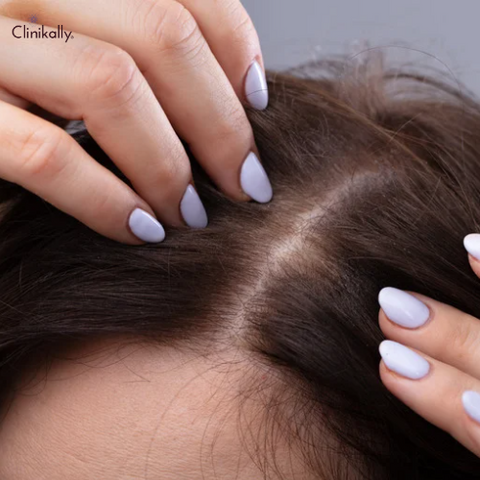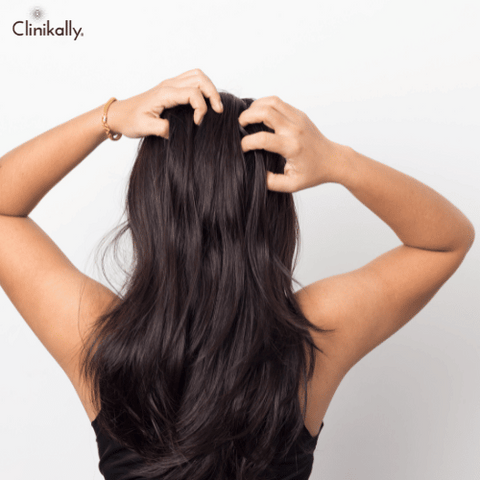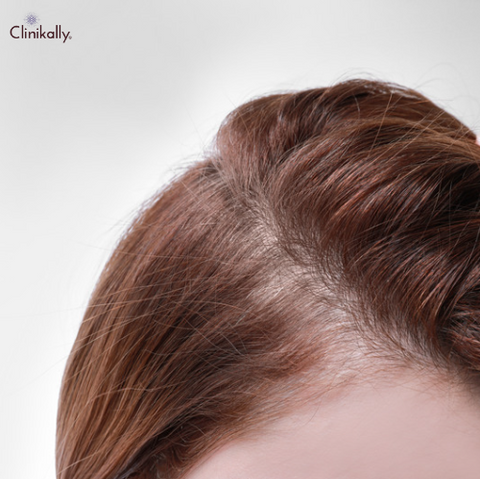A substance called sodium benzoate is frequently used as a preservative in food, cosmetics, and personal care items. Due to its abilities as a preservative and potential advantage for the health of hair, it is also used in hair care products. Sodium benzoate is commonly present in shampoos, conditioners, and styling treatments for hair. In order to preserve the product, it is employed as a preservative to stop the development of germs and fungi. Simply apply these items to your hair as instructed on the packaging to use them. You can get sodium benzoate in powder form from some providers if you're interested in using it as a stand-alone component for hair care.
To use, create a paste out of the powder and a tiny bit of water, and then apply it to your scalp and hair. After leaving the mixture on for a short while, thoroughly clean the area with water. Due to its preservation qualities and potential advantages for hair health, sodium benzoate can be a valuable ingredient in hair care products. However, it's crucial to use sodium benzoate-containing products sparingly and to always test a small area of skin first.
What is Sodium Benzoate and How Does it Benefit Hair?

A salt made from benzoic acid is called sodium benzoate. In addition to being often used as a food preservative, it is also present in many cosmetic and personal care items, particularly hair care items. Sodium benzoate is a preservative used in hair care products to stop bacterial and fungal growth, which can ruin the product and lead to scalp infections. There are various ways that sodium benzoate is thought to enhance hair. First, limiting the growth of the yeast Malassezia furfur, which is a major cause of dandruff, may help to lessen dandruff and flakiness of the scalp. Second, by re-establishing the pH balance of the scalp and hair, sodium benzoate may aid in enhancing hair texture and lustre.
Last but not least, sodium benzoate can aid in extending the shelf life of hair care products, which can help you save money by lowering the frequency with which you need to replace products that have gone bad. Although sodium benzoate is generally regarded as harmless, some people may react negatively to it, so it's crucial to carry out a patch test prior to using any product that contains sodium benzoate. Additionally, it's advised to use sodium benzoate-containing hair care products sparingly to prevent any negative effects.
Sodium Benzoate as a Hair Nourishing and Growth-Promoting Ingredient
Although sodium benzoate is mainly employed as a preservative in hair care products to stop bacterial and fungal growth, it is not often thought of as an element that nourishes or encourages hair growth. However, some research points to the possibility that sodium benzoate has antioxidant qualities, which can improve hair health by fending off damage from free radicals. Free radicals are unstable chemicals that can harm cells, including those in hair follicles, by inflicting oxidative stress and damage. Sodium benzoate may also aid in enhancing the effectiveness of other active ingredients in hair care products by enhancing their ability to nourish and stimulate hair growth.
However, there is little information, especially on sodium benzoate's impact on hair development and health. Despite the fact that it is typically regarded as safe for use in hair care products, it is crucial to remember that it is primarily employed as a preservative, and any potential benefits for hair health may only be indirect or small. Before using any new substances or hair care products, it's always a good idea to consult with your doctor or a licensed hair care specialist.
Sodium Benzoate and Its Effects on Hair Health and Repair
Sodium benzoate is commonly used as a preservative in hair care products, but little is known about its precise impact on hair health and restoration. However, sodium benzoate does possess several traits that can indirectly help hair health. For instance, it is thought to possess antibacterial qualities that can aid in preventing bacterial and fungal growth that can cause scalp infections and hair damage. In turn, this may stimulate the growth and restoration of healthy hair.
As a result of sodium benzoate, the pH balance of the scalp and hair may be improved, preserving the hair's natural moisture and avoiding dryness and damage. This can encourage the growth of healthy hair and lessen breakage and split ends. Additionally, some research suggests that sodium benzoate may possess antioxidant qualities that can aid in defending against free radical damage that can result in hair loss and breakage. In turn, this may encourage the growth and restoration of healthy hair.
The Potential Benefits of Sodium Benzoate for Hair Strengthening and Texture Improvement

Although sodium benzoate is primarily used in hair care products as a preservative to inhibit bacterial and fungal growth, it may also have some benefits for strengthening and improving the texture of hair. By facilitating the more efficient absorption of other active components in hair care products, sodium benzoate may contribute to the strengthening of hair. This might help these nutrients work more effectively in strengthening and nourishing the hair.
Sodium benzoate may also help regulate the pH levels of the scalp and hair, which can lessen breakage and damage. Sodium benzoate can aid in maintaining the hair's natural moisture by re-establishing the pH balance, which helps support stronger, healthier hair. The scalp may also experience an exfoliating impact from sodium benzoate, which may help eliminate dead skin cells and foster a healthy environment on the scalp. A healthy scalp can promote healthier hair development and possibly enhance the texture of the hair.
Additionally, sodium benzoate might possess antioxidant qualities that can aid in defending against free radical damage. Free radical damage to the hair shaft can result in breakage and texture loss. Sodium benzoate might aid in promoting healthier, more robust hair by preventing free radical damage.
Sodium Benzoate and Its Role in Strengthening Hair from Root to Tip
Sodium benzoate is generally used as a preservative in hair care products to inhibit the growth of germs and fungi, but it may also play a role in bolstering hair from root to tip. By facilitating the more efficient absorption of other active components in hair care products, sodium benzoate may contribute to the strengthening of hair. As a result, these components may be more effective in strengthening and nourishing hair from the root to the tip.
Sodium benzoate may also aid in balancing the pH of the scalp and hair. Sodium benzoate can assist in maintaining the natural moisture of the hair and minimising damage and breakage by re-establishing the pH balance. From the root to the tip, this can encourage thicker, healthier hair. Additionally, sodium benzoate might possess antioxidant qualities that can aid in preventing damage from free radicals. Free radicals can harm the hair shaft, which can result in breakage and a reduction in hair strength. Sodium benzoate may support healthier, more resilient hair from the root to the tip by preventing free radical damage.
In addition, sodium benzoate might have an exfoliating impact on the scalp, which could aid in removing dead skin cells and foster a better scalp environment. A healthier scalp can encourage stronger hair from the root to the tip, which in turn can support healthier hair development.
Sodium Benzoate and Its Impact on Hair Texture and Moisture
Supporting the preservation of the natural pH balance of the scalp and hair is one-way sodium benzoate may have an impact on hair texture. Dryness, frizz, and other textural problems can result from the scalp and hair being excessively acidic or too alkaline. Sodium benzoate can assist in maintaining the hair's natural hydration and minimising textural concerns by re-establishing pH equilibrium. Sodium benzoate may also improve the absorption of other active ingredients in hair care products. By nourishing and moisturising the hair, these compounds may be more effective at improving the texture and manageability of the hair. The scalp may also experience an exfoliating impact from sodium benzoate, which may help eliminate dead skin cells and foster a healthy environment on the scalp. A healthy scalp can promote healthier hair development and possibly enhance the texture of the hair. Additionally, sodium benzoate might possess antioxidant qualities that can aid in defending against free radical damage.
Understanding the Safety and Efficacy of Sodium Benzoate in Hair Care Products

Given that it has received regulatory approval from organisations like the United States Food and Drug Administration (FDA) for use in food and cosmetics, sodium benzoate is typically regarded as safe for use in hair care products. But because overuse or improper usage of sodium benzoate may have unfavourable effects, it is crucial to use it in hair care products in safe and sensible amounts. Depending on the particular product and intended application, sodium benzoate is commonly used in quantities of 0.1% to 2.5% in hair care products. Sodium benzoate is typically regarded as a safe and reliable preservative at these concentrations, and it may also have extra advantages for the health and texture of hair.
It is crucial to remember that some people may be sensitive to sodium benzoate and may develop side effects, including allergic reactions or itchiness of the scalp. Before applying new sodium benzoate-containing hair care products to the scalp or hair, it's crucial to test them on a small patch of skin to check for any negative reactions. Furthermore, it's critical to follow the directions on hair care products containing sodium benzoate and to refrain from abusing or misusing them. Dryness, irritation, and other negative effects may result from excessively using sodium benzoate or other preservatives in hair care products.
Research on Sodium Benzoate and Its Effects on Hair Health and Safety
There hasn't been much study explicitly looking at sodium benzoate's impacts on hair safety and health. However, several studies have looked into the efficacy and safety of sodium benzoate in various uses, such as as a food and cosmetic preservative. In general, research indicates that, when used in the right amounts, sodium benzoate is safe for use in food and cosmetics. The possible health advantages of sodium benzoate have also been studied in certain studies. One study, for instance, discovered that sodium benzoate contains antioxidant characteristics that can aid in preventing inflammation and oxidative stress, which are linked to a variety of health problems.
To completely comprehend the impact of sodium benzoate on hair health and safety, particularly in the amounts that are frequently seen in hair care products, more research is necessary. Additional research could look into sodium benzoate's possible advantages for healthy hair, including its effects on hair growth, texture, and moisture. Studies could also look into the safety of sodium benzoate in hair care products, especially for people with sensitive skin or a history of allergic reactions.
The Importance of Ingredient Safety and Product Formulation in Hair Care
The effectiveness and safety of hair care products are largely dependent on the safety of the ingredients and the formulation of the final product. Hair and scalp issues, as well as potential health issues, might result from using hair care products with dangerous or dubious components. Sulphates, parabens, formaldehyde, and phthalates are some substances that are frequently included in hair care products and can be harmful. Numerous health problems, including skin irritability, hormonal disruption, and possibly cancer, have been connected to these chemicals.
On the other hand, hair care products made with high-quality, secure substances can offer a number of advantages. In contrast to protein-rich substances like keratin and collagen, which can strengthen and protect the hair, natural components like coconut oil, argan oil, and aloe vera can moisturise and nourish the hair. In addition to the safety of the ingredients, product formulation is crucial for hair care. Generic products may not always be as effective as those that are designed expressly for particular hair types or issues. For instance, a shampoo and conditioner made specifically for oily hair will be better able to control excessive oil production than a product designed for all hair types.
Incorporating Sodium Benzoate into Your Hair Care Routine

A frequent preservative used in hair care products to stop the growth of dangerous bacteria and fungi is sodium benzoate. Although sodium benzoate is typically regarded as safe when used in small amounts, it's crucial to know how to utilize it effectively in your hair care routine. Here are some suggestions to bear in mind if you're considering using sodium benzoate-containing hair care products:
-
Read the label: Before using any hair care product, make sure to carefully read the label. Look for sodium benzoate in the ingredients list and make sure the product is designed for your specific hair type and concerns.
-
Use as directed: Follow the package directions and do not exceed the recommended dosage. Overusing hair care products can cause scalp irritation, dryness, and other problems.
-
Patch test: It is always a good idea to perform a patch test before using a new hair care product. Wait 24 hours after applying a small amount of the product to the skin behind your ear or on your inner arm to see if you have any allergic reactions or irritation.
-
Consider the following alternatives: If you have sensitive skin or are concerned about using sodium benzoate in your hair care routine, look for products that are preservative-free. Many natural hair care companies use natural preservatives such as essential oils, vitamin E, or grapefruit seed extract.
Including sodium benzoate in your hair care regimen might be a secure and efficient strategy to maintain the health of your hair and scalp. However, it's crucial to follow the directions on the packaging and to be alert for any possible side effects or allergic reactions.
The Best Ways to Use Sodium Benzoate for Nourished, Healthy, and Beautiful Hair
Because of its capacity to serve as a preservative and stop the growth of dangerous germs and fungus, sodium benzoate is frequently used in hair care products. But when used properly, it can also help the hair in other ways. For nourished, healthy, and gorgeous hair, use sodium benzoate in the following ways:
-
Use a shampoo with sodium benzoate: Keep an eye out for shampoos that include sodium benzoate. Sodium benzoate can reduce dandruff, stop irritation of the scalp, and maintain healthy hair.
-
Use a conditioner containing sodium benzoate: Conditioners containing sodium benzoate can help detangle hair, prevent breakage, and keep it looking healthy and shiny.
-
Use a leave-in treatment containing sodium benzoate: Leave-in treatments containing sodium benzoate can help to nourish and protect hair between washes. They can also aid in the prevention of frizz and the promotion of shine.
-
Use products that contain sodium benzoate as well as other beneficial ingredients: Look for hair care products that include sodium benzoate as well as other nourishing ingredients such as coconut oil, argan oil, or shea butter. These ingredients can combine to provide a variety of hair benefits, including increased moisture, improved manageability, and enhanced shine.
-
Follow the steps below: Whatever product you decide to use, make sure to carefully read the instructions. Overusing sodium benzoate or any other hair care product can lead to dryness, irritation, and other issues.
By incorporating sodium benzoate into your hair care routine, you can nourish, safeguard, and enhance the beauty of your hair. For the best results, always carefully follow the directions that come with the high-quality products you select, which should be tailored to your unique hair type and concerns.
Common Hair Care Products that Contain Sodium Benzoate and Alternatives to Consider
In many hair care products, sodium benzoate is used as a preservative. The following typical hair care items may contain sodium benzoate:
-
Shampoo: Sodium benzoate is frequently present in shampoos to aid in product preservation and stop the growth of dangerous bacteria and fungi.
-
Conditioner: Sodium benzoate is also present in conditioners to aid in product preservation and to benefit hair further.
-
Products for styling hair: To help preserve the product and offer additional benefits for the hair, many hair styling products, including hair gel and hair spray, may contain sodium benzoate.
There are alternatives to consider if using products with sodium benzoate causes you any concerns:
-
Natural hair care products: Natural preservatives like essential oils, vitamin E, or grapefruit seed extract are often used in place of synthetic preservatives like sodium benzoate in natural hair care products.
-
DIY hair care: You can completely avoid synthetic preservatives by making your own hair care products. Numerous natural ingredients like coconut oil, avocado, and honey are used in DIY hair care recipes that can be found online.
-
Products without preservatives: A few hair care companies sell items that have no preservatives in them. Although they might not last as long, these products can be a great option for people with sensitive skin or those who are worried about artificial preservatives.
There are alternatives to consider if you are concerned about the use of sodium benzoate, a common preservative found in hair care products. If you want to avoid using artificial preservatives like sodium benzoate in your hair care routine, natural hair care products, DIY hair care, and preservative-free products are all fantastic options to consider.
Final Thoughts: The Pros and Cons of Using Sodium Benzoate in Your Hair Care Regimen

As a result of its capacity to serve as a preservative and inhibit the development of harmful bacteria and fungi, sodium benzoate can be a useful ingredient in hair care products. The following are some advantages and disadvantages of including sodium benzoate in your hair care routine:
Pros:
-
Preservative properties: Sodium benzoate aids in the preservation of hair care products by inhibiting the growth of harmful bacteria and fungi.
-
Control dandruff: Sodium benzoate can aid in the control of dandruff and the prevention of scalp irritation.
-
Safe for the majority of people: Sodium benzoate has been given the go-ahead for use in food and cosmetic products by regulatory bodies like the FDA. It is generally regarded as safe when used in small amounts.
Cons:
-
Potential for irritation: Some people, especially those with sensitive skin, may experience irritation from sodium benzoate.
-
The ingredient that is synthetic: Since sodium benzoate is a synthetic preservative, some people might prefer to use natural hair care products instead.
-
Overuse: Using sodium benzoate or any other ingredient in hair care products excessively can cause dryness, irritation, and other problems.
When used properly, sodium benzoate can be a safe and reliable ingredient in hair care products. However, it's crucial to use these products as instructed and to be aware of the potential for irritation. There are natural alternatives available if you are worried about using synthetic ingredients in your hair care routine that don't contain synthetic preservatives like sodium benzoate.








































